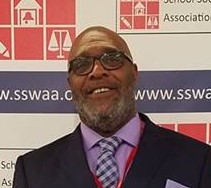Co-Occurring Disorders…the Epidemic of Today’s Clinician
Speaker(s):
Presentation:
Co-Occurring Disorders are ever present in our practice now more than ever and we must be educated as professionals on how to best meet the needs of our clients. We cannot keep looking at the person across from us and skipping the questions about substance use or alcohol use just assuming that they do not look the type or meet the age criteria in our mind. In my experience of practice, most people I have interviewed first used marijuana at about age 10-11 due to it being available in the home. This leads us to the point that we must be treating both issues with our client or we are simply putting a band-aid on the problem. This is a nation-wide crisis, but especially in the bootheel of Missouri we are losing this battle which means-we are losing lives. I have witnessed this first hand as many of my colleagues. IT IS AN EPIDEMIC. As professionals we must make it a priority as much as we have suicide in order to make a change. In this session I will address how we can make a change in our communities, in our offices, in our clients as well as in our professional treatment of our clients.
Objectives:
- Identify those with co-occurring disorders
- Utilize community programs to support goals in working towards helping this population of clients
- Describe ways clinicians can be more effective in working with this population

